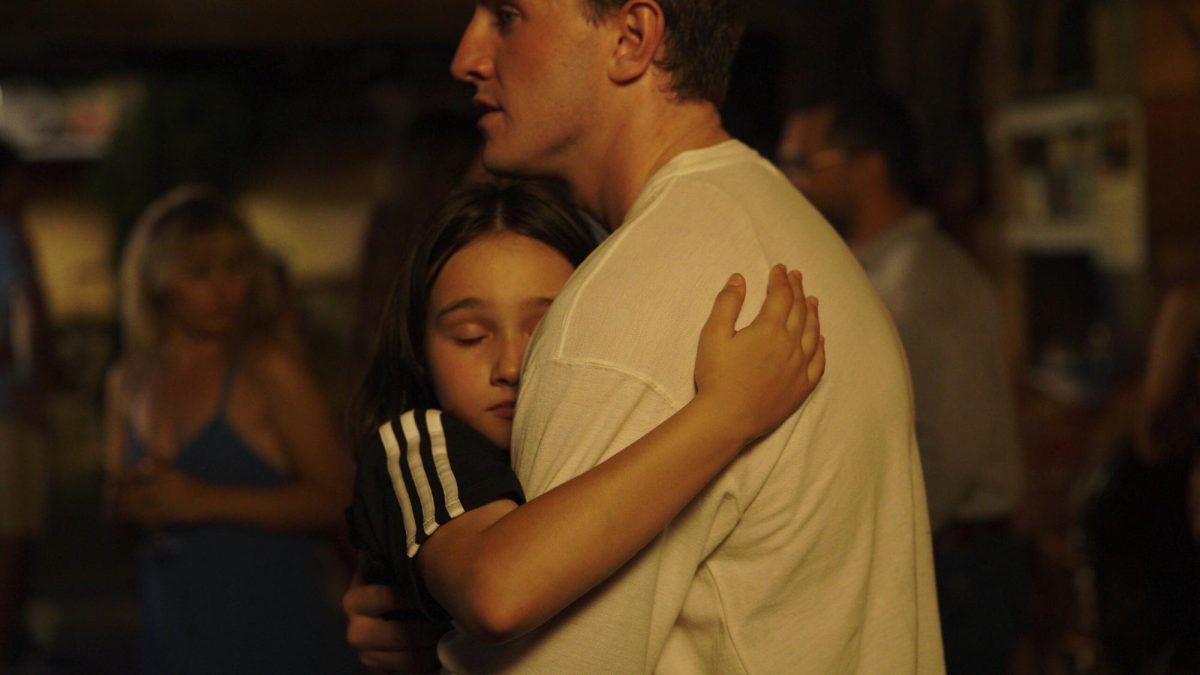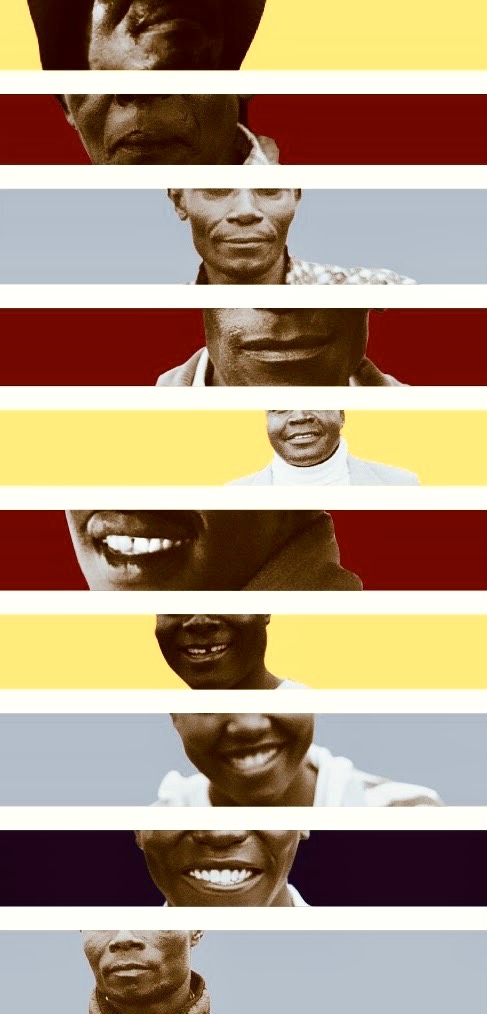I set out to write about some of my personal favorite father figures on television and film and unpack why I feel like they are so impactful but I realized when trying to write that article that I didn’t know where the power I was sensing in these specific characters and moments were coming from. As I embarked on an independent study to analyze films and television shows, I observed the crucial role father characters play in so many plots. I then came across staggering statistics that showed the effect fatherlessness has on children and began to consider the importance of fathers and how they are portrayed on screen is so important. This opened my eyes to see why scenes with fathers and mentors are so electric to me and I hope that the statistics below, which are just a mere glimpse into the fatherless crisis, are shared at greater length.
The following are some of the statistics I discovered on the impact of fatherlessness on children: 85% of youth in prison currently didn’t have a father growing up (Texas Department of Corrections). Children are twice as likely to drop out of school when growing up without a father in their lives (National Public Radio). 85% of all children who display a behavioral disorder of some kind grew up in a fatherless home (U.S. Department of Justice). 63% of the youth in the US made the decision to commit suicide when living in a home without a father (U.S. Department of Justice). 75% of adolescent patients in treatment centers for substance abuse come from fatherless homes (U.S. Department of Justice). Within the African-American/Black community, 2.5 million fathers are living with their children while 1.7 million are not (Huffington Post). 92% of the parents who are currently in prison in the United States are fathers (Glaze and Maruschak). 43% of fathers do not see their role as a father as something essential to their personal identity (Pew Research).
It is important to note that statistics can contain flaws such as if researchers were to use marital status as their variable to identify homes that are fatherless instead of examining whether or not a father is present in their children’s life. This can happen from outside the home in the same way that fathers can be physically present but emotionally absent or worse, abusive. Even with these disparages, the overwhelming breadth of statistics shows the devastating impact the lack of a father figure has on children which they carry into adulthood.
Underneath the substance and behavioral disorders, lack of success in educational pursuits, relationships problems, a life of crime and drugs, and more are psychological problems that sem from the lack of encouragement, direction, and love a father provides. As 92% of the parents in prison are fathers, the Federal Bureau of Prisons reported that 93.3% of inmates were men and 6.7% were women. This is linked to research on men’s preconditioned dispositions that lean more heavily towards violence. It also reveals how the cycle of fatherlessness is created. Boys grow up without a present father and fail to become the men they desire to be deep down because they had a fundamental need that wasn’t met.
These statistics show there is a need for good fathers which brings clarity to how a lot of problems in our countries can be fixed or prevented. The media plays a large role in determining the cultural narrative and conversations around fatherhood which is why it’s important to look deeply into how fathers are being portrayed in film and television.
Erica Scharrer, an Associate Professor of Communications at the University of Massachusetts asked this question when performing a research study titled “Disparaged dads? A content analysis of depictions of fathers in U.S. sitcoms over time” which observed how sitcom dads used to be depicted as wise, serious, and calm. This shifted into portrayals of fathers being incompetent and humorous, often in a foolish manner. In an article she wrote based on her recent research, she emphasizes how “fictional entertainment can shape our view of ourselves and others” and sitcoms as a medium depend on the frequent assumptions that form stereotypes. What this study showed is that “fathers were shown in fewer parenting situations in recent sitcoms” and were “depicted as humorously foolish” when attempting to parent their children 50% of the time. This encourages audiences to laugh at the ineptness of the father character and could be fueling the self-criticism fathers feel as “only 39% reported feeling like they are doing a “very good job” raising their children (National polls by Pew Research Center).
Even though sitcoms are a very specific category in the medium of television, this study reflects deep truth’s about how television and film affect society’s perceptions and why this needs to be researched to a greater degree. It is important for men to see positive examples of fatherhood so that they will have an ideal worthy to pursue. This is a responsibility that can help give men direction and purpose in life, which the statistics on fatherlessness shows are particular struggles of those who grew up without a Dad. There is a possibility for men to break the cycle and by doing so, they have the opportunity to impact the generations after them for the better. It is also important for women because it stresses the importance of healthy relationships and encourages them to stress how important it is for the man in their life to rise to this role, even in situations when people are divorced or separated. To be clear, it is ultimately the man’s responsibility but I don’t think people realize the power that exists when someone chooses to not tell someone “you will never change because of x, y, and z” and instead challenges them by calling out who they could become.
I participated in a focus group on suicide and repeated a concept I had recently learned about how in recent years, the conversations on men’s mental health has emphasized that men need to know they are loved but has ignored an even deeper need that men have to feel strong and capable. I explained how it resonated with me currently and reflected why two fathers in particular that I met at a non-profit that I began volunteering at impacted my life in a profound way. Both of them listened to me spill my angst and struggles with compassion which was helpful but this didn’t do more than just alleviate a little of my suffering. Dr. Anne Lembke says, “Empathy without responsibility is a shortsighted attempt to relieve suffering.” What really helped me was the example they demonstrated as they both embraced the responsibility of being a father wholehearted. This challenged me to begin taking accountability for the trajectory of my life and uncover the false beliefs and fears that had kept me from seeing that becoming a good man and a good father was a possibility for me. Another participant quickly disagreed with the idea that father’s are that important in the home and explained why single mothers do just fine without them. This didn’t make me angry at the person but instead at cultural forces at play that are causing her and others to ignore these statistics and the children that are suffering from fatherlessness and/or the lack of a positive ideal to pursue.
William Jeynes performed a Meta-Analysis on the Roles of Fathers in Parenting and centered on questioning whether “fathers make a unique contribution in raising children” and if so, what good outcomes spring forth. Across all the results a recurring theme became apparent: “while mothers often tested as being more nurturing in their relationship with children, fathers tended to be more involved in preparing children for their life.” Saying that fathers have a unique impact does not mean mothers don’t, it is just a different one. This is what is often assumed by making a statement about the importance of fathers. What Jeynes also found is that “father engagement is best facilitated in two-parent families” and that two healthy parents will provide the best result for a child.
It saddens me that close to half of fathers don’t see this role as essential to their identity and worries me that with all the issues stemming from fatherlessness, it feels increasingly difficult to have a conversation about this topic without arguing or a cultural controversy erupting. The unique importance of a father is a universal theme and both films and television have an opportunity to express how this bursts forth in individual stories. With ideas exploding on social media about how to change the world I wonder what would happen if people contemplated what could happen if instead of discouraging fathers and men who have the potential to become a father, they inspired them.







